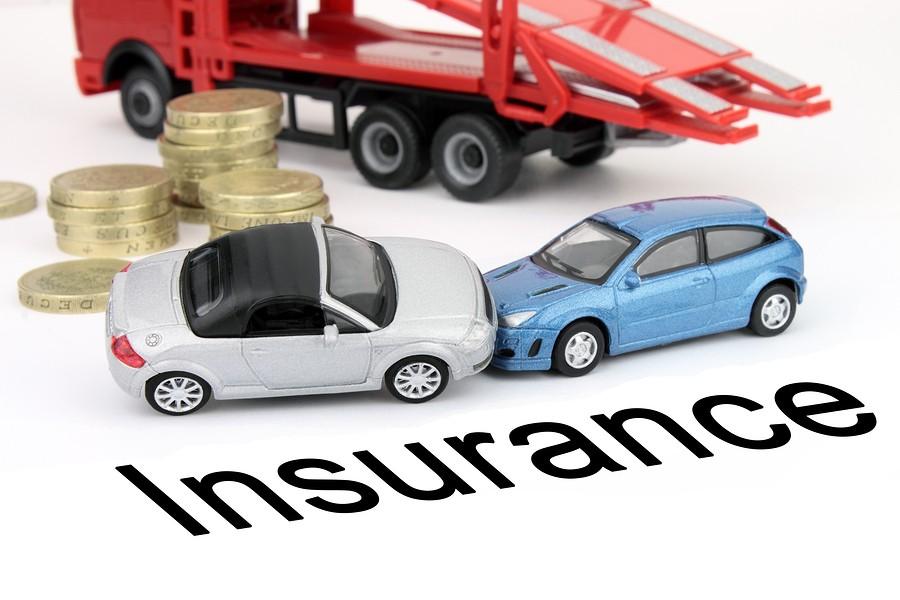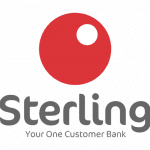Last Updated on December 23, 2024 by admin
Car insurance coverage is an essential part of owning and driving a vehicle. Accidents, thefts, and other unexpected events can result in significant financial losses if you aren’t properly protected.
It’s important to understand the different types of car insurance coverage available to ensure you are well-protected against potential risks. There are six main types of car insurance coverage designed to shield you from various kinds of losses.
The first type is liability coverage, which offers financial protection if you are found responsible for causing injury or damage to someone else’s property.
Read: Reasons why deposit insurance scheme is necessary for Nigeria Banks
Secondly, collision coverage covers the cost of repairing or replacing your vehicle in case it is damaged due to an accident with another vehicle or object. Comprehensive coverage protects against non-collision incidents such as theft, vandalism, fire, or natural disasters.
Personal injury protection (PIP) covers medical expenses for injuries sustained in an accident, no matter who was at fault.Uninsured/underinsured motorist coverage steps in when the at-fault party does not have adequate insurance.
This article will outline the different types of insurance policies that car owners should consider to protect themselves against losses in the event of an accident or theft.
You can also read: The Importance Of Insurance Coverage For Businesses against risk and damage
There are several types of car insurance, each designed to cover different aspects of vehicle ownership and usage. Here are the main types:
1. Liability Insurance:
- Bodily Injury Liability: Covers medical expenses, lost wages, and legal fees if you cause an accident that injures someone else.
- Property Damage Liability: Covers the cost of repairing or replacing the other party’s vehicle or property if you are at fault in an accident.
2. Collision Insurance:
- Coverage: Pays for damage to your car resulting from a collision with another vehicle or object, regardless of who is at fault.
- Usage: Essential for protecting your vehicle against repair or replacement costs after an accident.
3. Comprehensive Insurance:
- Coverage: Covers damage to your car caused by non-collision events, such as theft, vandalism, fire, natural disasters, and falling objects.
- Usage: Provides extensive protection for a wide range of potential damages.
Also read: How to borrow loans against Life insurance policy
4. Personal Injury Protection (PIP) or Medical Payments Coverage:
- Coverage: Pays for medical expenses for you and your passengers regardless of who is at fault in an accident. PIP may also cover lost wages and other related expenses.
- Usage: Important for covering medical costs and ensuring quick access to treatment.
5. Uninsured/Underinsured Motorist Coverage:
- Uninsured Motorist: Covers your injuries and damages if you are hit by a driver without insurance.
- Underinsured Motorist: Covers your injuries and damages if the at-fault driver’s insurance is insufficient to cover the full extent of your losses.
- Usage: Provides protection when involved in an accident with drivers lacking adequate insurance.
6. Gap Insurance:
- Coverage: Pays the difference between the actual cash value of your car and the amount you owe on your auto loan if your car is totaled or stolen.
- Usage: Particularly beneficial for those with new or financed vehicles.
7. Rental Reimbursement Insurance:
- Coverage: Pays for the cost of a rental car while your vehicle is being repaired after a covered accident.
- Usage: Helps manage transportation needs during repairs.
8. Roadside Assistance Insurance:
- Coverage: Provides services like towing, tire changes, jump-starts, and fuel delivery if your car breaks down.
- Usage: Offers peace of mind for unexpected breakdowns and roadside emergencies.
9. Classic Car Insurance:
- Coverage: Specifically designed for classic or antique cars, offering agreed value coverage, which pays out an agreed amount in case of a total loss.
- Usage: Ideal for owners of vintage or collectible vehicles.
10. Ride-Sharing Insurance:
- Coverage: Provides additional coverage for drivers who use their personal vehicles for ride-sharing services like Uber or Lyft.
- Usage: Fills the coverage gaps between personal auto insurance and ride-sharing company policies.
Choosing the right types of car insurance depends on your specific needs, the value of your vehicle, and the level of protection you desire
Which type of car insurance is required by law?
The type of car insurance that is required by law typically includes:
1. Liability Insurance:
- Bodily Injury Liability: Covers medical expenses, lost wages, and legal fees if you cause an accident that injures someone else.
- Property Damage Liability: Covers the cost of repairing or replacing the other party’s vehicle or property if you are at fault in an accident.
Minimum Requirements:
- Varies by Jurisdiction: The specific minimum coverage requirements for liability insurance can vary by country, state, or region. It’s important to check local regulations to ensure compliance.
Liability insurance is the most common type of car insurance mandated by law to ensure that drivers can cover the costs of accidents, protecting both the driver and other parties involved.
Auto Insurance Costs
Auto insurance costs can vary widely depending on several factors. Here’s a comprehensive look at what influences these costs:
. Personal Factors:
- Age: Younger and older drivers typically face higher premiums due to perceived higher risk.
- Gender: Statistically, males, especially younger males, may have higher premiums.
- Marital Status: Married individuals often enjoy lower premiums than single individuals.
- Driving Record: A clean driving record with no accidents or violations usually results in lower premiums.
- Credit Score: In some regions, a higher credit score can lead to lower insurance rates.
2. Vehicle-Related Factors:
- Make and Model: Expensive, high-performance, or luxury vehicles cost more to insure.
- Age of Vehicle: Newer cars may attract higher premiums due to higher replacement costs.
- Safety Features: Cars with advanced safety features may qualify for discounts.
- Usage: Higher annual mileage and business use can increase premiums.
3. Coverage Factors:
- Type of Coverage: Comprehensive, collision, liability, and other coverages each add to the total premium.
- Coverage Limits: Higher coverage limits increase premiums but provide more financial protection.
- Deductibles: Choosing a higher deductible can lower your premium, but it increases out-of-pocket costs in the event of a claim.
4. Location Factors:
- Residence: Urban areas with higher traffic and crime rates typically have higher premiums.
- Garage Parking: Vehicles parked in a garage often attract lower premiums compared to those parked on the street.
5. Discounts and Incentives:
- Safe Driver Discounts: Discounts for maintaining a clean driving record.
- Bundling: Savings for bundling multiple policies (e.g., home and auto) with the same insurer.
- Multi-Car Discount: Savings for insuring multiple vehicles on the same policy.
- Low Mileage Discount: Reduced premiums for drivers who drive less than a specified number of miles annually.
6. Insurance Company Factors:
- Insurer’s Pricing Model: Different insurers have different pricing models, so it’s wise to compare quotes.
- Customer Loyalty: Long-term customers may receive loyalty discounts.
Tips for Reducing Auto Insurance Costs:
- Comparison Shopping: Regularly compare quotes from multiple insurers.
- Review Coverage Needs: Ensure you have the necessary coverage without over-insuring.
- Ask About Discounts: Inquire about all available discounts and how to qualify for them.
- Improve Your Credit Score: Maintaining a good credit score can help reduce premiums in some regions.
- Opt for Higher Deductibles: If you can afford higher out-of-pocket costs in the event of a claim, this can lower your premium.
How Auto Insurance Works
Auto insurance is a contractual agreement between you and an insurance company that provides financial protection against losses related to your vehicle. Here’s a detailed overview of how it works:
1. Purchasing a Policy:
- Choosing Coverage: Select the types and amounts of coverage you need, such as liability, collision, comprehensive, and more.
- Premium Payment: Pay a regular premium (monthly, quarterly, or annually) to keep the policy active. The premium is determined based on factors like your driving history, vehicle type, location, and coverage amount.
2. Coverage Period:
- Active Protection: While your policy is active, you’re protected against covered losses. For instance, if you have collision coverage, your insurance will help pay for repairs if you crash into another car or object.
3. Filing a Claim:
- Incident Occurs: If you’re involved in an accident or experience a covered event (like theft or natural disaster damage), you file a claim with your insurance company.
- Claim Process:
- Report the Incident: Contact your insurer as soon as possible to report the incident.
- Provide Details: Submit necessary documentation, such as a police report, photos of the damage, and a description of what happened.
- Assessment: An insurance adjuster may inspect the damage and evaluate the claim.
- Approval and Payout: If the claim is approved, the insurer will cover the costs according to your policy terms, minus any deductibles.
4. Deductibles:
- Out-of-Pocket Costs: You pay a deductible before the insurance covers the remaining costs. For example, if your deductible is $500 and the repair cost is $3,000, you pay $500, and the insurer pays $2,500.
5. Policy Renewal:
- Continued Coverage: Most auto insurance policies are renewable annually. Before renewal, the insurer may reassess the premium based on any changes in your circumstances or claims history.
- Policy Review: It’s a good time to review your coverage and make adjustments if needed.
Types of Auto Insurance Coverage:
- Liability Insurance: Covers damages and injuries you cause to others in an accident.
- Collision Insurance: Pays for damage to your car from collisions, regardless of fault.
- Comprehensive Insurance: Covers non-collision-related damages, such as theft, fire, or natural disasters.
- Personal Injury Protection (PIP): Covers medical expenses for you and your passengers.
- Uninsured/Underinsured Motorist Coverage: Protects you if you’re hit by a driver without adequate insurance.
- Gap Insurance: Covers the difference between the car’s value and the amount owed on your loan if the car is totaled or stolen.
- Roadside Assistance: Provides services like towing and tire changes if your car breaks down.
- List of 9mobile/etisalat data Plan and subscription code - January 27, 2026
- How to buy data, Request and gift dataon Airtel - January 26, 2026
- How to buy Glo data plan and cancel data Renewal - January 24, 2026








